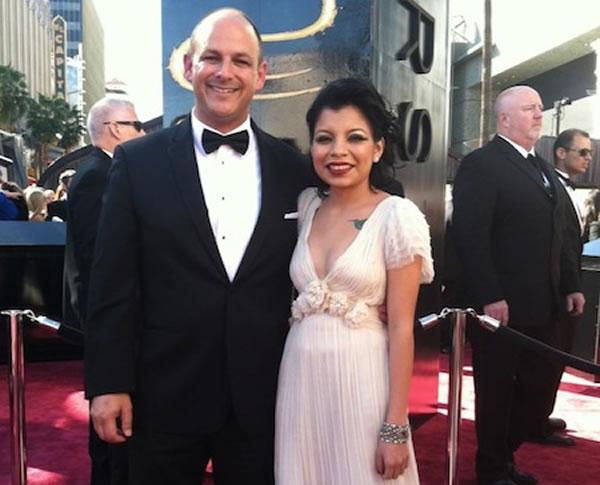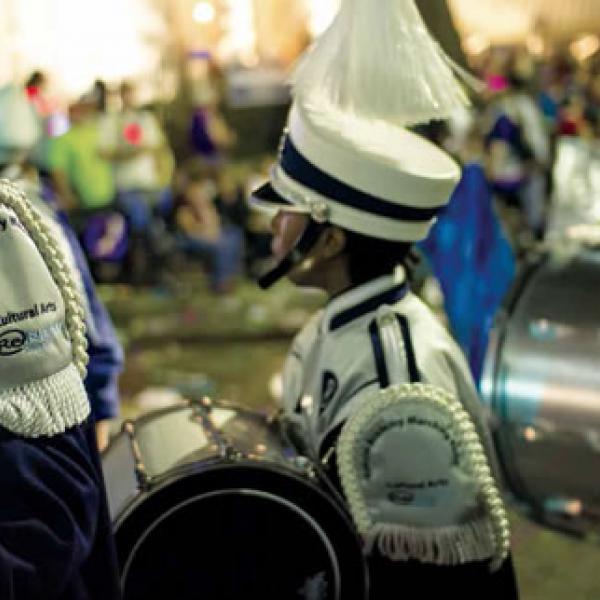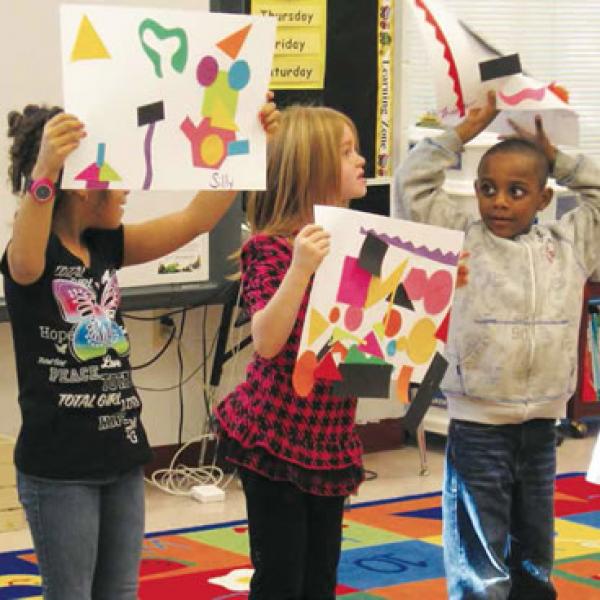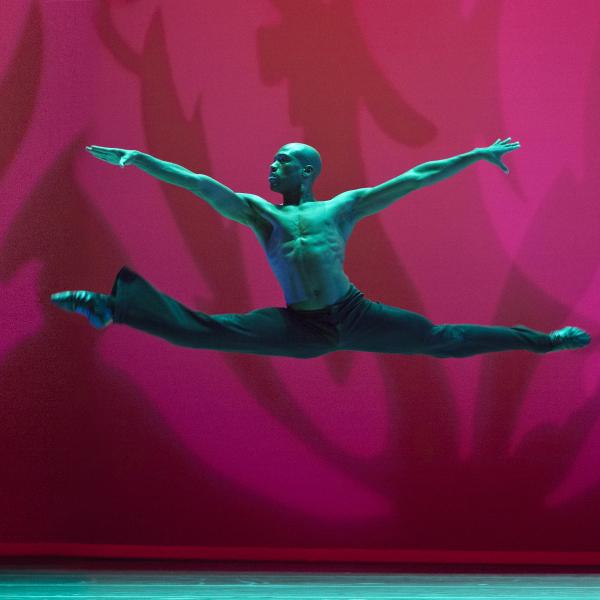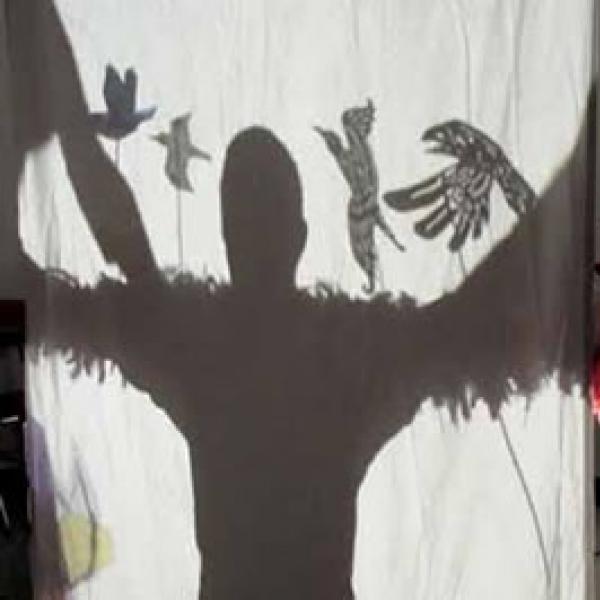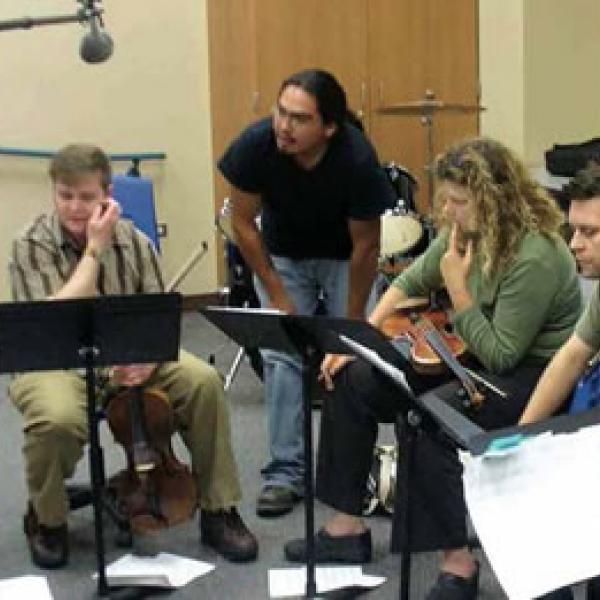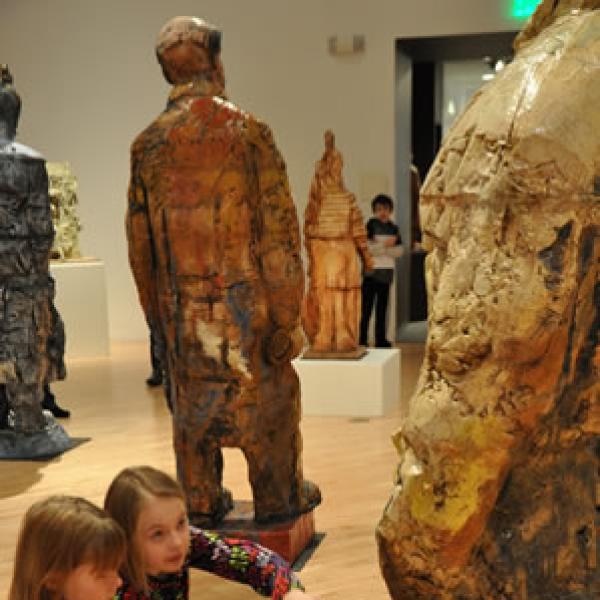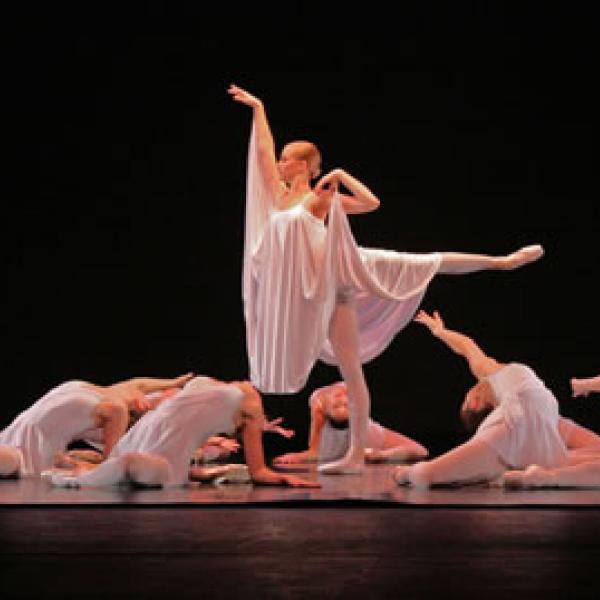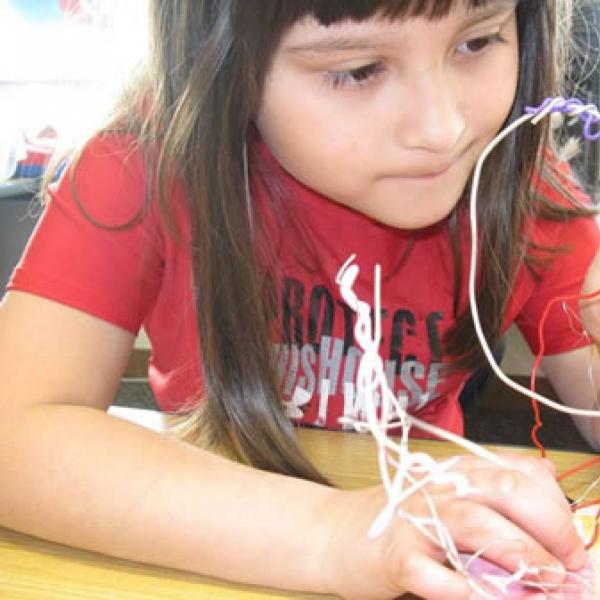Art Saved My Life: Talking with Inocente
Transcript
Inocente: I think art makes me a stronger and better person because it's a way that I express my feelings. I'm not a big talker on how I feel. But if someone gives me a canvas, I can definitely describe all my feelings to you on a canvas. So it's made me stronger in the sense that I've become more confident. And art just kind of kept me away from all the bad things I could have been doing. I felt like it saved my life.
Inocente: Hi. My name's Inocente and I'm from San Diego, California.
Adam Kampe: So your earliest experience with art—do you remember that?
Inocente: I always did like sketches and little drawings. I went to the ARTS center, A Reason To Survive. And that's where I started painting. So when I was about 14, I really started painting with actual paint. And for me that was like magic. That was when I realized that I was doing artwork.
Adam Kampe: Can you talk about how you discovered ARTS and what exactly ARTS is?
Inocente: Well, I was going to a school that was for homeless kids. They had after school programs. And, of course, I always signed up for the arts because…I don't know, I guess I just was more attracted to art, rather than, say, going to play soccer at the field. So I would always sign up for the art class. And A Reason To Survive has a van program, called Van Go. They pick us up and take us to their center. And we would do art work there. And that's how I discovered them. And we would take classes, probably, once a week. And I just kind of fell in love with them. And I felt accepted there. So I just kind of started taking the bus there on my own and finding my way there and back. So I ended up being there almost every day.
Adam Kampe: In looking at ARTS website, it mentions that the organization believes in the power of the arts and creativity to literally transform lives, especially those of kids or young adults. It's pretty safe to say that ARTS and the arts has literally transformed your life. Can you talk about that transformation and that change?
Inocente: Yeah. It helped me find who I was. I mean, I feel, too, that after all I went through, after all the things that I went through, with being homeless for over nine years, to being on the streets, to the relationship with my mom. Being able to use art as my escape, rather than, say, drugs or join a gang or do any of that, was just amazing for me that I went through the right path. Everyone has a different thing they go to, like music or sculpting or just any type of art.
Adam Kampe: As you've traveled around and discussed the movie, have you had a chance to engage with other kids?
Inocente: I went to Atlanta. And we did a screening for Tri Cities High School. And a lot of high school students came to watch the documentary. And afterwards, I did a Q and A. And they were just so sweet. Three guys from the school collaborated on a painting that they did for me. And I just felt so honored to be there and I exchanged emails and phone numbers with a lot of them. Because they wanted to talk to me about how much they could relate even though they were at in Atlanta and I came from San Diego, how much we related and how me being there in the documentary gave them hope. That made me realize how much change this was going to make for not just me, for everybody.
Adam Kampe: Was there a moment, either during the filming of the documentary or after it, where you realized, "Wow. You know, this is something I really want to get involved in? This whole issue in general of arts education or being an advocate for other people in your situation?”
Inocente: When the filmmakers approached me about doing the documentary, they're really, really amazing people. And they were genuine. But, you know, I said yes because I knew this was going to help people. I didn't do it because I thought it was going to make me famous or anything. I didn't even know how far this documentary would go but I said yes to making a documentary because I felt like I wasn't only telling my story but I was telling the story of many other people. And a lot of people compare to this story, maybe not on the same level as that they were homeless, but in a sense of being hurt and not giving up hope and continuing with their life. So the fact that this documentary has gotten a lot more exposure just, it's really fulfilling for me because I know it's going to help a lot of people. And I know it's just going to give more exposure to the reality out there.
Adam Kampe: One of the things that really struck me is how you woke each morning, and you talk about this, and decided that the first thing you were gonna do is paint your face. And there is something so unique and courageous about using your own body as, for lack of a better word, a canvas. Can you talk about that and how that sort of came to be?
Inocente: I was just so in love with art that I wanted to start my morning with art. And I found a way and that way was by painting on my face. So every morning, I would wake up just a little bit earlier, so I had enough time to paint my face all colorful before I went to school. And I got a lot of judgment for that and a lot of people were very judgmental. But I realize that it wasn't about them. And it was about me and it was about how I liked how I felt. And it was just something fun for me to do. And even though people were judgmental, I still did it anyways.
Adam Kampe: How did you come across what you would maybe describe as your style? Because there's definitely an almost electric, feel to the paintings at least what I've seen in the film and online.
Inocente: I think despite my past, I've managed to paint beautiful things because even though I went through a lot and there's still some things I'm working on, I feel like if I paint sad things and dark stuff that it would just make me even sadder. So even if I'm sad, I try to paint something beautiful and bright because it just kind of changes your mood. And the colors are more vibrant so it gives you a different state of mind, I feel like. Also, my art is very messy. And I like that because growing up, I felt like my father would want perfection. So art has given me the freedom to be messy and if I accidently drop paint on the canvas, I just tell people that's my artwork.
Adam Kampe: What do you dream about for other children, teenagers, that are in your position? Or another way to put that is what do you dream about for the future of arts education for the youth of the country?
Inocente: Well, my dream for the arts education is that, you know that, it never disappears. Because I feel like, you know, we don't have that a lot in school. I feel like if I went to school where we did a lot of artwork, I feel like I would have done so much better. And maybe not necessarily like painting, but art is music or sculpting or art can be anything. We just cannot live without art. And I don't know how anyone can even think about getting rid of the arts education. Because it's so important, not just to people who love art, but people who see the art. So I feel like it's, it's like a chain reaction. Kids will act out if they're unhappy and if there's no art, I'm sure there'll be a few unhappy kids out there. I'd be one of them.
MUSIC CREDITS:
Excerpt of “Night Owl” by Broke for Free from their Directionless EP.
Excerpt of “Love Story” by Fhernando from the album, Last Days of Disco. Both pieces used courtesy of Creative Commons and found on the WFMU’s Free Music Archive at freemusicarchive.org
